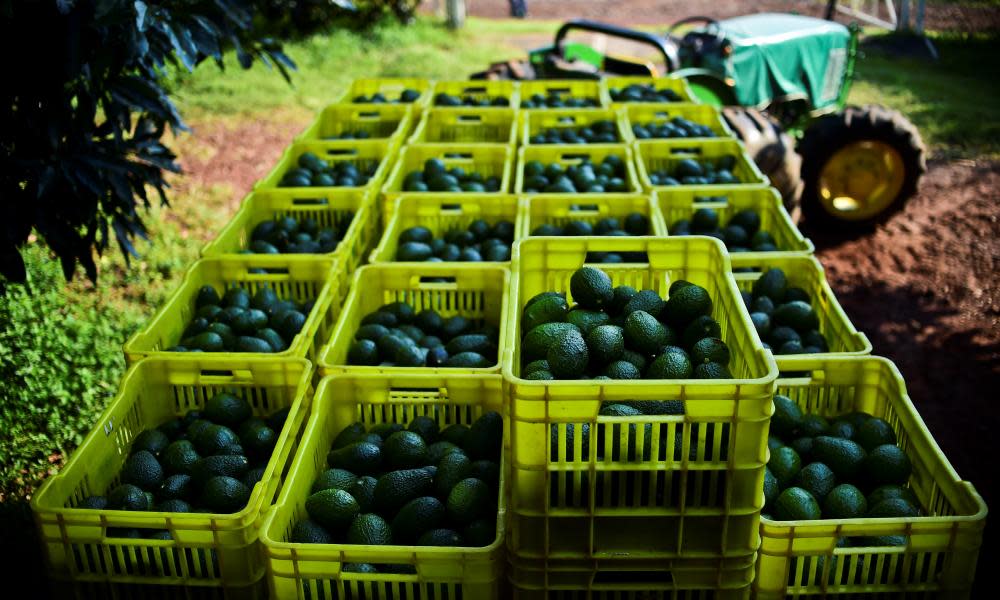Up to four avocado trucks stolen in Mexican state every day

Up to four trucks carrying avocados are stolen every day in the violent Mexican state of Michoacán, as organized crime groups seek to take advantage of consumers’ seemingly insatiable appetite for the fruit.
Avocado packers and exporters took out newspaper adverts on Friday to decry a worsening security situation in the state, which has long been a battle ground for warring crime factions.
Related: Mexico's avocado army: how one city stood up to the drug cartels
The banditry has become so severe that packing plants have promised to pay growers 15 pesos a kilogram (78 cents) for any avocados stolen during the transportation.
“It’s impossible to continue taking these losses,” the advert said. “Failing to stop the theft of these lorries will have an irreparable impact on the avocado industry.”
Mexico’s avocado sector has boomed over the past 20 years as demand from consumers in the US and beyond has proved insatiable. Eighty per cent of US avocado imports come from Michoacán, which was also the testing ground for Mexico’s militarized war on drugs that launched in 2006.
As the violence grew worse, self-defence groups and community police forces were formed as local communities in the region sought to defend themselves. Some of those groups were in turn co-opted by organized crime, and most were eventually forced to disarm.
Mexico’s president, Andrés Manuel López Obrador, took office six months ago promising a new strategy to fight crime, but violence has continued unabated across the country.
López Obrador has pushed for the creation of a militarised police known as the national guard – but the force’s first deployment will be to southern Mexico to stop migrants entering the country.
Friday’s newspaper advert “is but a sign of the overall, out-of-control criminal conflict in Michoacán”, said Falko Ernst, senior analyst Mexico for the International Crisis Group.
“There are at least 20 illegal armed groups violently competing for territories and markets in the state. Yet not a single actor has been able to establish dominion over the others. This means war has become perpetual and extremely costly” for the criminal groups, Ernst said.
“The avocado sector, a billion-dollar industry, after all, is too attractive [for armed groups] to pass up on, and producers and exporters are bearing some of the cost.”

